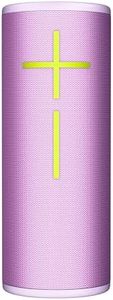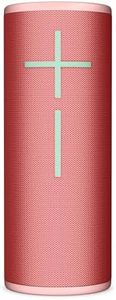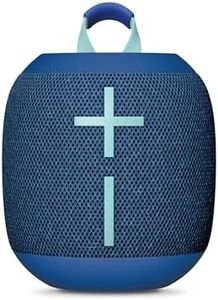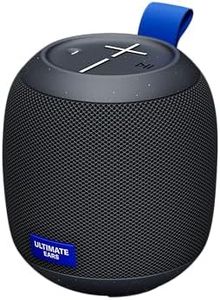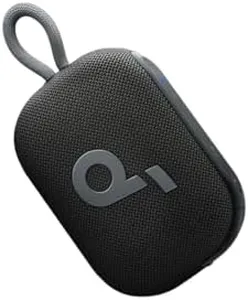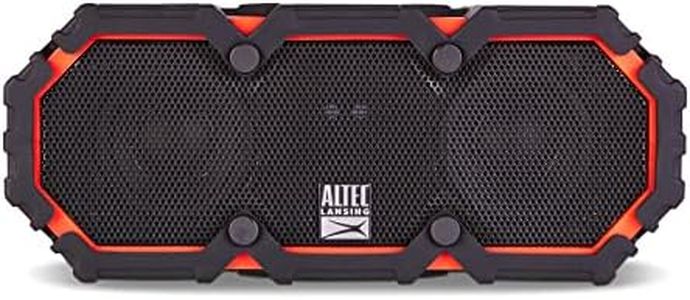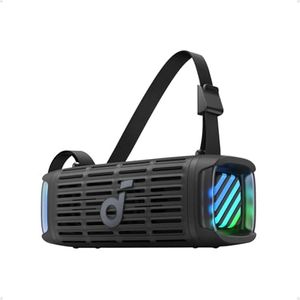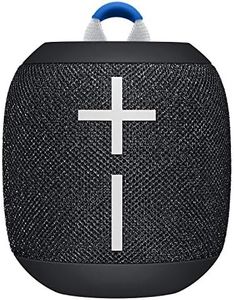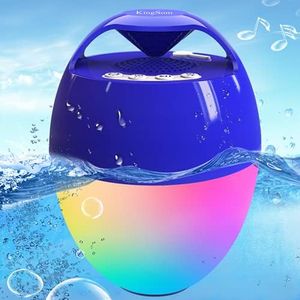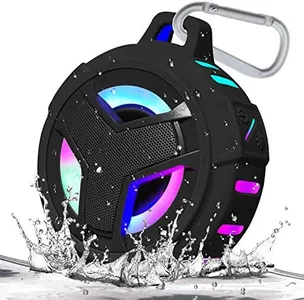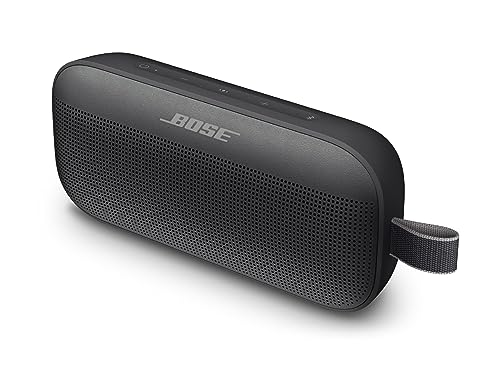We Use CookiesWe use cookies to enhance the security, performance,
functionality and for analytical and promotional activities. By continuing to browse this site you
are agreeing to our privacy policy
10 Best Floating Bluetooth Speakers
From leading brands and best sellers available on the web.By clicking on a link to a third party's website, log data is shared with that third party.
Buying Guide for the Best Floating Bluetooth Speakers
Floating Bluetooth speakers are a fun and practical way to enjoy music by the pool, in the bath, or on outdoor adventures like lake trips or camping by water. Choosing the best one means considering not just how good it sounds but how well it fits your water activities and outdoor needs. Think about where and how you’ll use it most, how rough it might get, and how important features like battery life or portability are for your routine.Waterproof RatingThe waterproof rating tells you how well a speaker resists water and sometimes dust. This spec usually appears as an IP rating (like IPX7 or IP67). Higher numbers mean better protection. If you want to use your speaker in the pool a lot, look for an IPX7 (can be submerged briefly) or even an IP67 (which also means it’s dustproof). If you only need splash protection, a lower rating may work. Think about how often your speaker will actually be in or close to water and choose the level of protection that matches.
Buoyancy and Floating StabilityThis spec tells you if the speaker will stay afloat and how steady it will be on the water’s surface. Some speakers are flat and wide for more stability, while others are smaller and may tip easily when bumped. If you want to leave the speaker in the pool while swimming or playing, pick one known for good floating balance. If you just want something that won’t sink if dropped, most will do, but for continuous floating use, stability matters.
Battery LifeBattery life tells you how long your speaker can play music on a single charge. Some last just 4-6 hours, while others can go over 12 hours. If you prefer longer pool parties or don’t want to recharge often, go for a longer battery life. If you just need music for quick dips, shorter battery life may be fine. Think about your typical usage time to decide what suits you best.
Bluetooth RangeBluetooth range is how far your device can be from the speaker and still stay connected. Standard ranges are around 10 meters (33 feet), enough for most backyard pools, but some may offer longer ranges. If your phone or music source will be set far from the speaker — for example, inside the house while the speaker is outdoors — a larger range will help keep the connection stable.
Sound Quality and VolumeSound quality covers how clear and rich the music sounds, while volume tells you how loud it can get. Floating speakers tend to be smaller, so look for ones that are known for clear sound and enough volume to be heard over splashing or outdoor noises. If you plan to use it in larger or noisier spaces, prioritize louder and richer sound. For quiet relaxation, basic sound should work.
Durability and BuildThis focuses on how tough the speaker is against drops, bumps, and sunlight. Floating speakers often get knocked around, so it’s important they’re made from strong material. If you want a speaker for kids, groups, or rough outdoor adventures, check for build quality and shockproof claims. If it’s just for gentle use, durability needs are lower.
Portability and SizePortability is about how easy it is to carry the speaker and if it fits in your bag or space. Larger speakers may float or sound better but can be harder to bring along. For travel or hiking, choose a lightweight and compact one. If it mostly stays at home, size may not matter as much.
Extra Features (like lights or speakerphone)Some floating speakers offer extras like built-in LED lights for nighttime fun or the ability to take calls with a speakerphone feature. These can add fun or convenience depending on your habits. If you like music with light shows or want hands-free calls by the pool, look for these features; if not, you can skip them.
